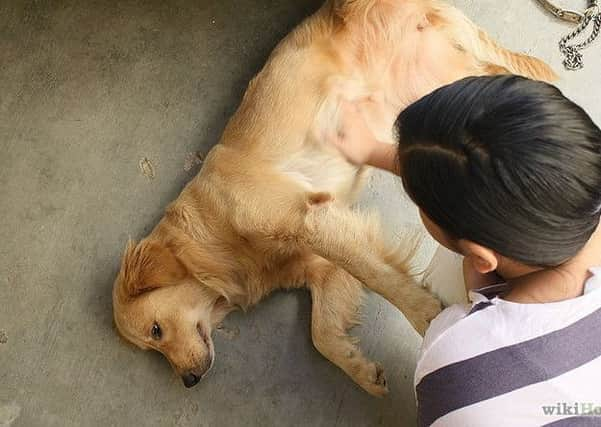Ask the experts at Weedon Vets - how to cope when your dog suffers epiletic seizures


“I have a five-year-old red setter that has been on a diet to control urine crystals for over two years. This year he suffered his first epileptic episode and the fits have now have gradually increased, even though he is on two medications for the condition.
“As well as coping with the distressing fits themselves, what is really causing us the most stress is his behaviour. He barks non-stop after the fits and is very agitated. We are at our wits end! What can we do to improve his condition?”
Advertisement
Hide AdAdvertisement
Hide AdThe vet said: “Epilepsy can be a hard condition to manage and cope with. The behaviour you are describing after your dog’s seizures sounds very much like the post-ictal phase where drowsiness and confusion are common. It is the period in which the brain recovers from the insult it has experienced.
“Many dogs with epilepsy will be stabilised on one drug alone, but some do need several anti-epileptic drugs in combination. Different dogs respond to these combinations in different ways and the regime needs to be tailored to each individual.
“Many dogs with epilepsy will never be completely seizure free, but the aim of therapy in these cases is to increase the interval between seizures, reduce the severity of the seizures and improve the quality of the post-ictal period; basically finding a level of seizure activity that both dog and owner can cope with.
“I would be cautious about changing him from the therapeutic diet he is on as some, but not all, dogs require lifelong dietary management of crystals in the urine.
Advertisement
Hide AdAdvertisement
Hide Ad“Your vet should be able to guide you through a change in diet, if it is necessary. If the diet is changed, regular urine samples, to check crystals are not re-forming, may be necessary.”
Sarah Elliott, BVSc MRCVS